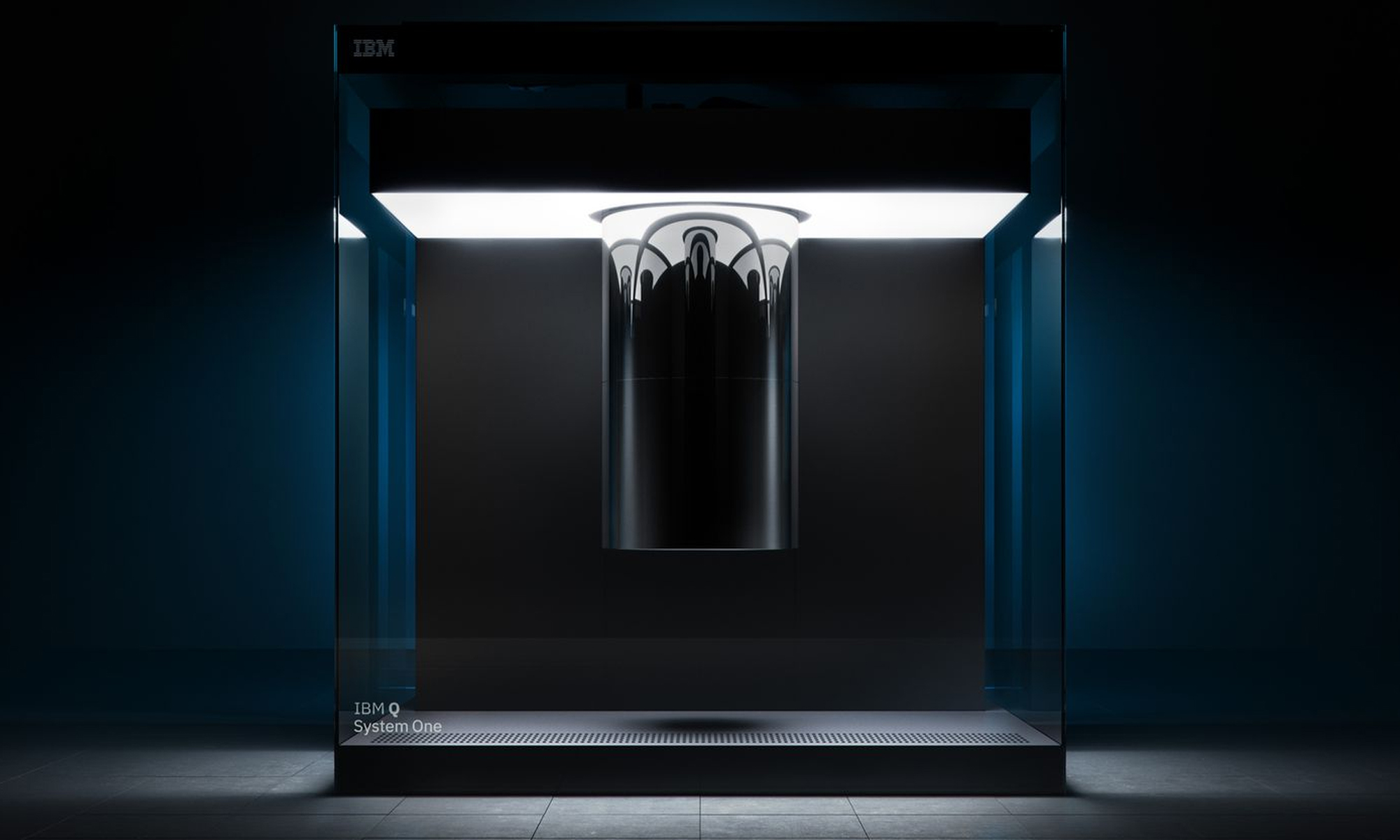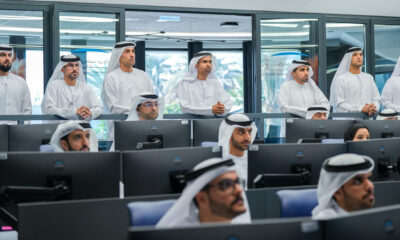News
Researchers In Abu Dhabi To Receive The Middle East’s First Quantum Computer
A quantum computer doesn’t rely on traditional bits. Instead, it encodes information using qubits, which can have the value of “0” and “1” at the same time.

If there’s one emerging technology capable of single-handedly ushering in a new era of information technology, it’s quantum computing. Soon, researchers working at the Technology Innovation Institute (TII) in Abu Dhabi will get their hands on the Middle East’s first quantum computer, allowing them to solve incredibly complex problems by harnessing the phenomena of quantum mechanics.
“This will put the UAE on the map to be a known entity for research on such a topic. And that’s a big achievement for the entire Arab world,” said Boulos Alfakes, a senior researcher at the TII. “There will be a dramatic difference between the countries that own the technology and the ones that depend on the technology, believes Professor Jose Ignacio Latorre, chief of research at the TII’s Quantum Research Center.
One of the biggest challenges associated with quantum computing is cooling. The small quantum microchip at the heart of the computer is designed to operate at very low temperatures (near absolute zero). If the microchip gets too hot, it becomes unstable, rendering the whole computer useless.
To address this issue, researchers ordered two dilution refrigerators from Finland. The refrigerators are complex and expensive, but less sophisticated cooling methods are not up to the task.
Also Read: Saudi Researchers Use Quantum Computing To Design More Efficient Airplanes
Just like all quantum computers, the one that will soon be in the hands of researchers at the TII doesn’t rely on traditional bits (combinations of zeros and ones). Instead, it encodes information using qubits (or quantum bits), which can have the value of “0” and “1” at the same time.
Thanks to this and other unusual properties, quantum computers can solve certain difficult problems much faster than traditional computers. For example, some cybersecurity experts fear that quantum computing could break traditional cryptography in the near future, potentially forcing millions of organizations around the world to implement quantum-resistant cryptographic algorithms.
News
Alienware Just Announced Six New Gaming Monitors
The new models include three QD-OLED and three budget-friendly QHD options, expanding the company’s lineup for all gamers.

Alienware has just updated its gaming monitor lineup with six new additions, including the highly anticipated Alienware 27 4K QD-OLED Monitor. The latest wave of releases is set to reach more gamers than ever, offering high-end QD-OLED displays alongside more budget-friendly options.
The latest displays clearly show that the company is doubling down on QD-OLED with three new models sporting the technology. A redesigned Alienware 34 Ultra-Wide QD-OLED Monitor is also making a return, further refining what is already a fan-favorite display.
A Unified Design: The AW30 Aesthetic
All six monitors feature Alienware’s new AW30 design language, first introduced at CES. The AW30 aesthetic brings a futuristic, minimalist look that unites the entire lineup under a cohesive visual identity.
Pushing QD-OLED Even Further
The refreshed Alienware 34 Ultra-Wide QD-OLED Monitor (AW3425DW) builds on its predecessor’s success with a 240Hz refresh rate (up from 175Hz) and HDMI 2.1 FRL support. It also gains G-SYNC Compatible certification alongside AMD FreeSync Premium Pro and VESA AdaptiveSync, ensuring ultra-smooth performance. With a WQHD (3440×1440) resolution and an 1800R curve, this display enhances immersion for both gaming and cinematic experiences.
For those who crave speed, the Alienware 27 280Hz QD-OLED Monitor (AW2725D) pairs a high refresh rate with QHD resolution, balancing sharp visuals with ultra-smooth gameplay. Meanwhile, the Alienware 27 4K QD-OLED Monitor (AW2725Q) delivers stunning clarity with an industry-leading pixel density of 166 PPI, making it the sharpest OLED or QD-OLED monitor available.
Also Read: Infinite Reality Acquires Napster In $207 Million Deal
Worried about OLED burn-in? Alienware’s entire QD-OLED lineup comes with a three-year limited warranty covering burn-in concerns, offering peace of mind for gamers investing in these high-end displays.
Bringing QHD To A Wider Audience
Alongside QD-OLED, Alienware is also releasing three new QHD gaming monitors aimed at more price-conscious gamers. The Alienware 34 Gaming Monitor (AW3425DWM), Alienware 32 Gaming Monitor (AW3225DM), and Alienware 27 Gaming Monitor (AW2725DM) provide a range of sizes and formats to suit different preferences:
- The Alienware 34 Gaming Monitor (AW3425DWM): An ultrawide (WQHD) option for a panoramic, immersive experience.
- The Alienware 32 Gaming Monitor (AW3225DM): A standard 16:9 panel for a traditional but expansive desktop setup.
- The Alienware 27 Gaming Monitor (AW2725DM): A 27” display offering the same performance in a more compact form factor.
All three gaming monitors feature a fast 180 Hz refresh rate, a 1ms gray-to-gray response time, and support for NVIDIA G-SYNC, AMD FreeSync, and VESA AdaptiveSync to eliminate screen tearing. Additionally, with 95% DCI-P3 color coverage and VESA DisplayHDR400 certification, these displays deliver vibrant colors and high dynamic range for lifelike visuals.


























